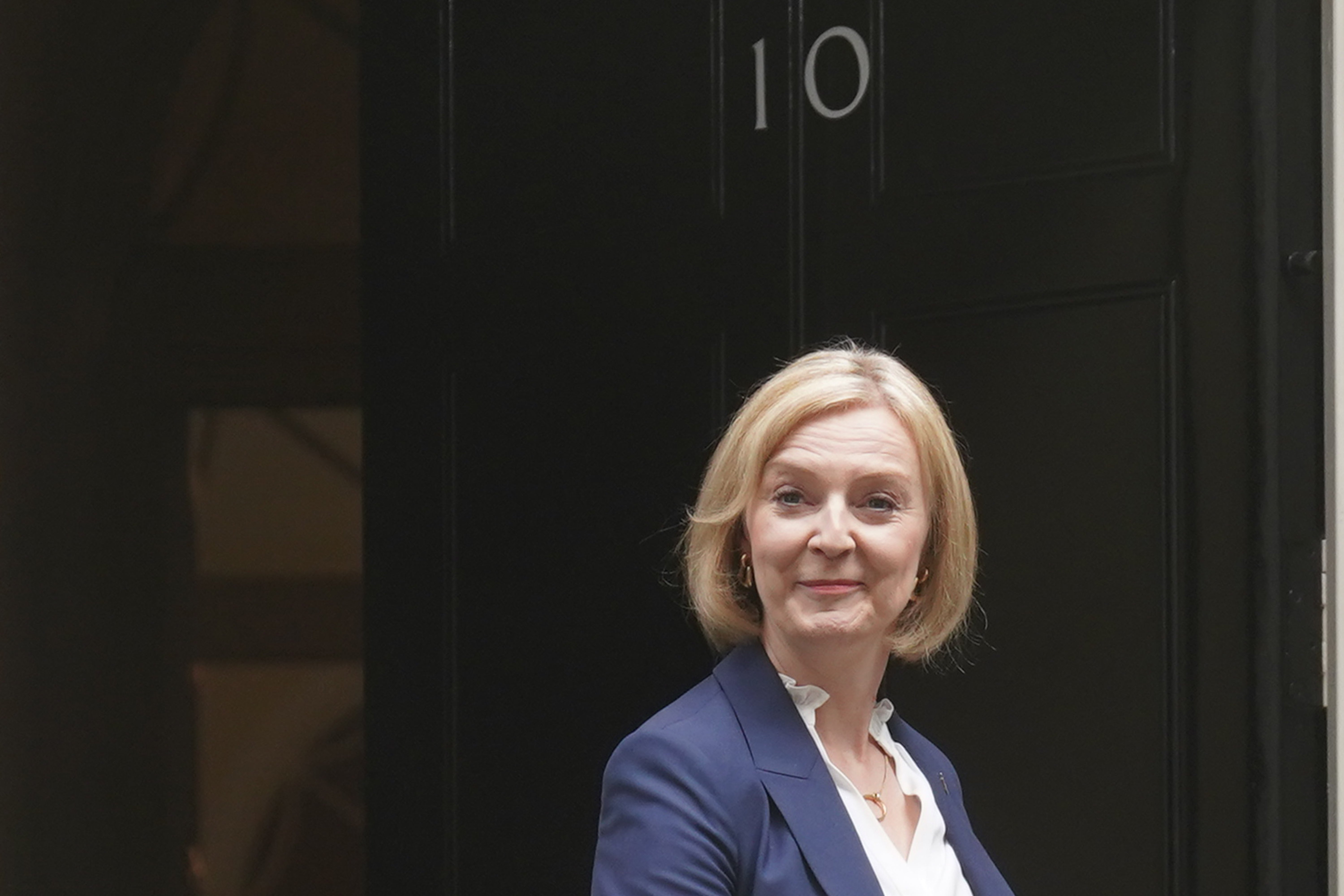Truss could slash personal taxes in ‘investment zones’ under economic plans
Those who live and work in the low-tax areas envisaged by the Prime Minister could see their own contributions cut, it is understood.

Your support helps us to tell the story
From reproductive rights to climate change to Big Tech, The Independent is on the ground when the story is developing. Whether it's investigating the financials of Elon Musk's pro-Trump PAC or producing our latest documentary, 'The A Word', which shines a light on the American women fighting for reproductive rights, we know how important it is to parse out the facts from the messaging.
At such a critical moment in US history, we need reporters on the ground. Your donation allows us to keep sending journalists to speak to both sides of the story.
The Independent is trusted by Americans across the entire political spectrum. And unlike many other quality news outlets, we choose not to lock Americans out of our reporting and analysis with paywalls. We believe quality journalism should be available to everyone, paid for by those who can afford it.
Your support makes all the difference.Liz Truss is considering plans to slash personal taxes in addition to business levies in new “investment zones” as she seeks to set the wheels of her economic strategy in motion.
Those who live and work in the low-tax areas envisaged by the Prime Minister could see their own contributions cut, with the burden also lightened for firms – although no decisions have yet been made, it is understood.
The proposed “investment zones”, dubbed “full fat freeports”, were a staple of Ms Truss’s campaign for the Tory leadership.
Under her plan, Ms Truss said these areas would benefit from a low-tax burden, reduced planning restrictions and regulations tailored on a case-by-case basis.
The Sun On Sunday reported that the new PM is now weighing up whether personal taxes could be cut for people working there.
Chancellor Kwasi Kwarteng could announce as many as 12 of the “investment zones” in his high-anticipated mini-budget on Friday, according to The Sunday Times, although it made no mention of tax cuts for individuals.
Ministers are also said to have discussed whether environmental protections could be watered down in these areas to clear the way for new developments.
The Government is reportedly looking at the West Midlands, Thames Estuary, Tees Valley, West Yorkshire and Norfolk as potential sites.
With speculation building over the direction policy will take as Ms Truss seeks to put her stamp on No 10, it has also been suggested the PM could lift the ban on new grammar schools within months.
Senior Tory MP Sir Graham Brady is planning to table an amendment to the Schools Bill in a move to bring about the change, and believes political conditions are promising, according to The Sunday Telegraph.
Politics is set to return in full force following the Queen’s funeral, with ministers outlining support for businesses and plans to see the NHS through the winter, before the Chancellor’s so-called “fiscal event” rounds off the week.
Normal activity in Westminster has been put on hold since the late monarch’s death, with business in both Houses halted for the official period of mourning.
It is expected that MPs will return to the Commons on Wednesday, following the state funeral on Monday, where those who wish to do so can take a new oath or affirmation to the King.
The PA news agency understands that Business Secretary Jacob Rees-Mogg will also set out further details of the Government’s plans to help firms through the energy crisis.
Heath Secretary and Deputy Prime Minister Therese Coffey is expected to outline her vision to see the NHS through the winter months on Thursday.
Mr Kwarteng’s mini-budget, focused on tackling the cost-of-living crisis and boosting growth, will then be delivered on Friday.
It is expected to confirm Ms Truss’s plans to reverse the national insurance hike and cancel the planned rise in corporation tax.
It has also been suggested the Chancellor will pursue a move to scrap the cap on bankers’ bonuses, although PA understands no final decisions have yet been taken.
Last week Ms Truss announced her proposals to combat sky-high energy bills, with a move to cap prices and boost domestic supplies.
That included lifting the ban on fracking and new licences for North Sea oil and gas.
Ms Truss said she would “end the UK’s short-termist approach to energy security and supply once and for all”.
But her plans have come under fire from a former chief scientific adviser to the Government, as he has warned the PM’s drive for more oil and gas production is “completely at odds” with country’s net zero objectives.
Sir David King, who held the post from 2000 to 2007, told The Independent: “We’re looking at a situation where the crisis is with us here today.
“But we don’t recognise that when we say ‘let’s go ahead and start new fracking operations in this country’.
“It beggars belief.
“What it seems to show is that the leadership in the Government does not understand the nature of the climate crisis.”
The window of opportunity for Mr Kwarteng’s “fiscal event” has been highly constrained, with politics paused following the Queen’s death and the PM expected to fly to New York for the United Nations General Assembly following the funeral on Monday.
MPs had been due to break for the conference season on Thursday, but will now be asked to sit a day longer to make time for the mini-budget on Friday.
A parliamentary business paper also suggests MPs will consider a motion on Thursday proposing that the Commons returns from the conference recess early, on October 11.